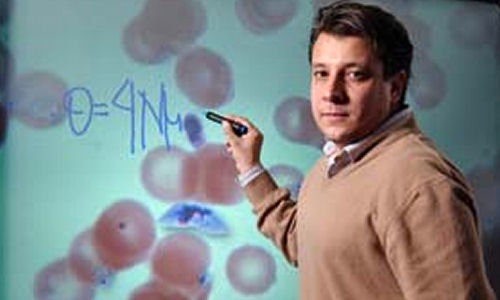Cancer is a disease of the genome resulting from a combination of genetic modifications (or mutations). We inherit from our parents strong or weak predispositions to developing certain kinds of cancer; in addition, we also accumulate new mutations in our cells throughout our lifetime. Although the genetic origins of cancers have been studied for a long time, researchers were not able to measure the role of non-coding regions of the genome until now. A team of geneticists from the University of Geneva (UNIGE), by studying tissues from patients suffering from colorectal cancer, have succeeded in decoding this unexplored, but crucial, part of our genome. Their results can be found in Nature.
To better understand how cancer develops, scientists strive to identify genetic factors – whether hereditary or acquired – that could serve as the catalyst or trigger for tumor progression. Until now, the genetic basis of cancers had only been examined in the coding regions of the genome, which constitutes only 2% of it. However, as recent scientific advances have shown, the other 98% is far from inactive: it includes elements that serve to regulate gene expression, and therefore should play a major role in the development of cancer.
In order to better understand this role, Louis-Jeantet professor Emmanouil Dermitzakis and his team, from the Department of Genetic and Developmental Medicine in UNIGE’s Faculty of Medicine, studied colorectal cancer, one of the most common and most deadly cancers. Indeed, each year, one million new cases are detected around the world, and for almost half of these patients, the disease will prove fatal. Using genome sequencing technology, the UNIGE geneticists compared the RNA between healthy tissue and tumor tissue from 103 patients, searching for regulatory elements present in the vast, non-coding portion of the genome that impact the development of colorectal cancer. The goal was to identify the effect, present only in cancerous tissue, of acquired mutations whose activation would have triggered the disease. This approach is totally new: it is the first study of this scale to examine the non-coding genome of cancer patients.
Unknown Mutations
The UNIGE team was able to identify two kinds of non-coding mutations that have an impact on the development of colorectal cancer. They found, on one hand, hereditary regulatory variants that are not active in healthy tissue, but are activated in tumors and seem to contribute to cancer progression. It shows that the genome we inherit not only affects our predisposition towards developing cancer, but also has an influence on its progression. On the other hand, the researchers identified effects of acquired mutations on the regulation of gene expression that affect the genesis and progression of colorectal tumors.
‘The elements responsible for the development and progression of cancers located in the non-coding genome are as important as those found in the coding regions of the genome. Therefore, analyzing genetic factors in our whole genome, and not only in the coding regions as it was done before, gives us a much more comprehensive knowledge of the genetics behind colorectal cancer,’ explains Halit Ongen, the lead author of this study. ‘We applied this completely innovative methodology to colorectal cancer, but it can be applied to understand the genetic basis of all sorts of cancers,’ underlines Professor Dermitzakis.
Story Source:
The above story is based on materials provided by Université de Genève.





